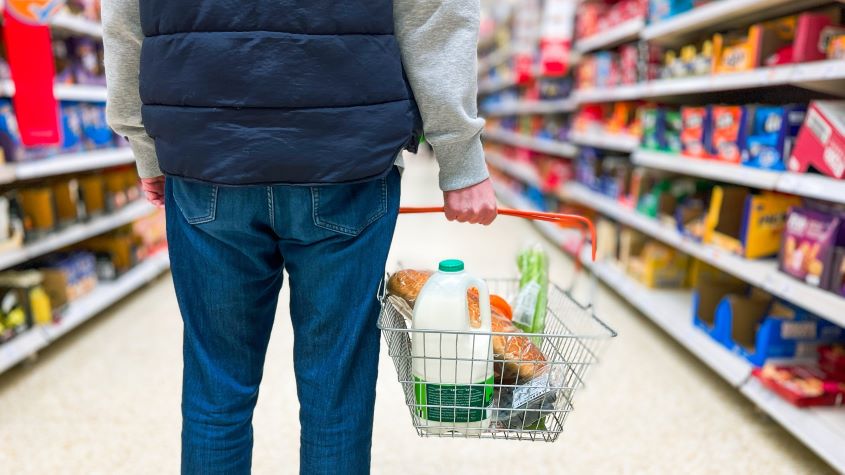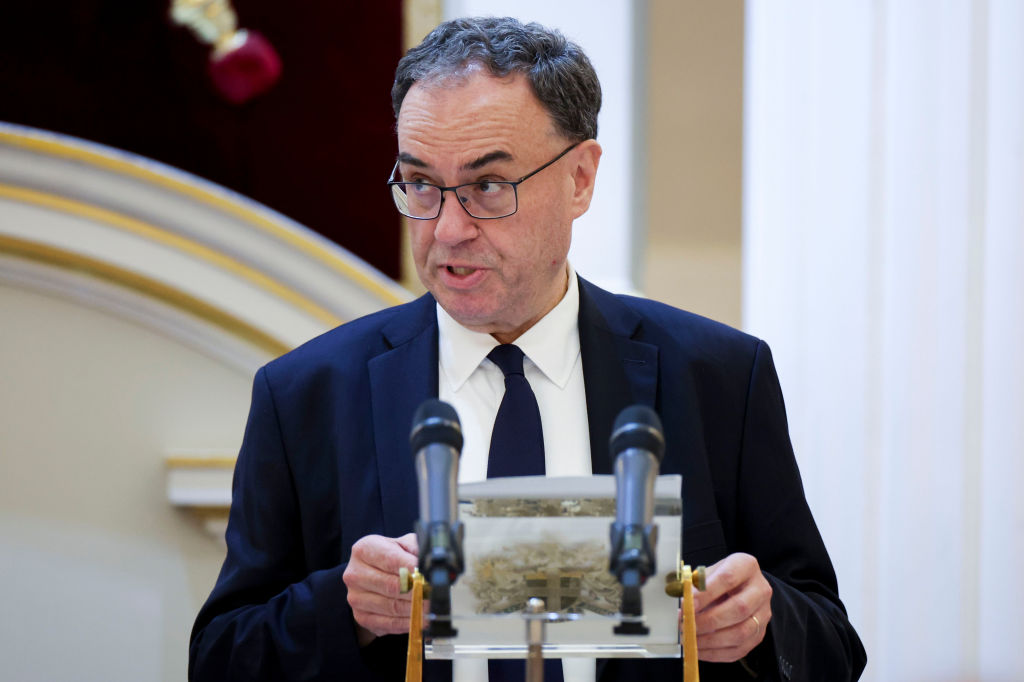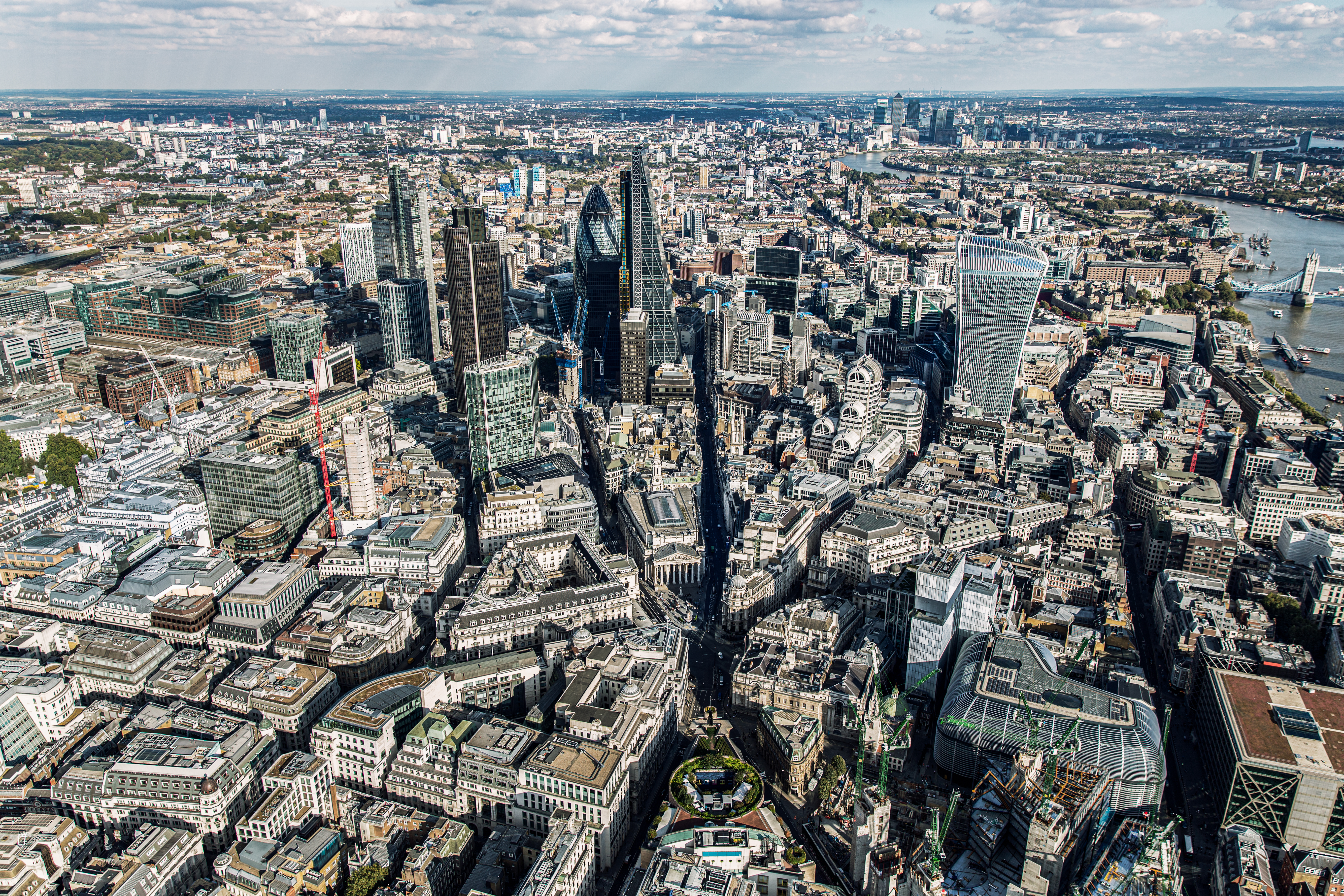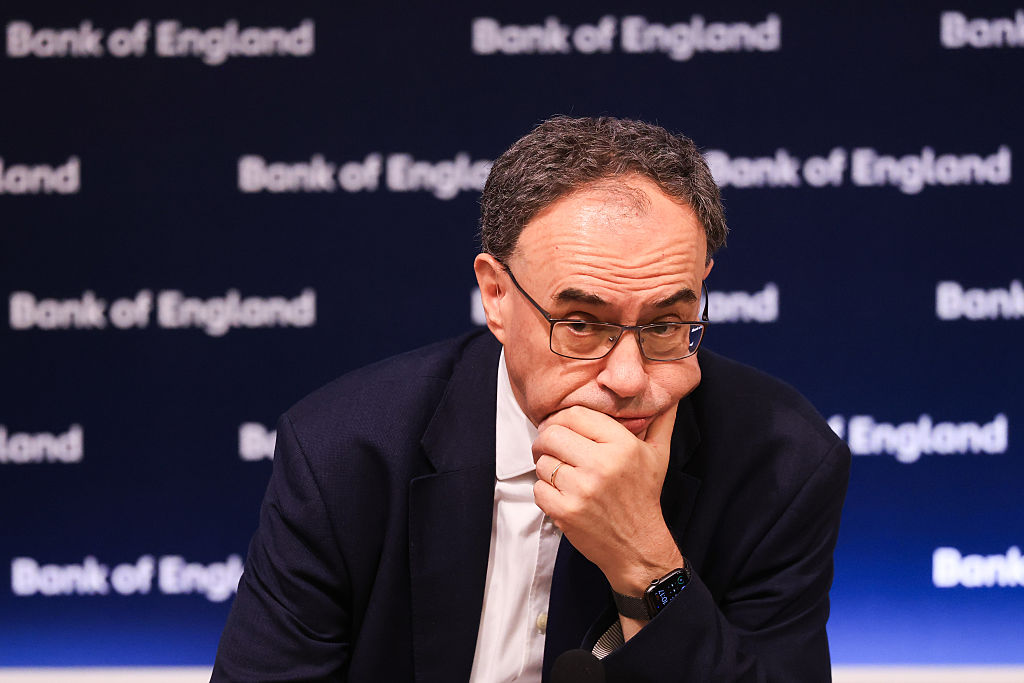UK inflation slows to 10.5%
Figures from the Office for National Statistics showed the decrease was largely due to falling fuel prices


Get the latest financial news, insights and expert analysis from our award-winning MoneyWeek team, to help you understand what really matters when it comes to your finances.
You are now subscribed
Your newsletter sign-up was successful
Want to add more newsletters?
Inflation slowed for the second month in a row in December with the Consumer Prices Index (CPI) coming in at 10.5% over the 12 months to the end of 2022, from 10.7% the month before.
But the figure remains near historic highs as prices continue to be driven up by the high cost of energy, food and non-alcoholic beverages, the latest data from the Office for National Statistics (ONS) showed.
Breaking down the UK inflation figures
According to the ONS, the rate of inflation for housing and household services remained the same at 26.6%, primarily due to the high cost of electricity and gas. Despite the government’s energy price guarantee, the cost of energy for households has jumped significantly over the past two years.
Try 6 free issues of MoneyWeek today
Get unparalleled financial insight, analysis and expert opinion you can profit from.

Sign up to Money Morning
Don't miss the latest investment and personal finances news, market analysis, plus money-saving tips with our free twice-daily newsletter
Don't miss the latest investment and personal finances news, market analysis, plus money-saving tips with our free twice-daily newsletter
Food prices increased 16.9% year-on-year (YoY), compared to 16.5% the month before, their 17th consecutive increase as households. Higher prices for milk, cheese and eggs were mainly responsible for the growth.
At the other end of the spectrum, the falling price of motor fuels helped inflation in this category fall from 7.6% in November (YoY) to 6.9% in December. That’s a notable improvement from earlier in the year. Prices in this category were 15.2% higher YoY in June.
Price growth also moderated in the clothing and footwear, and recreation and culture sectors.
However, price growth in the services sector continued to accelerate. The annual rate of inflation for restaurants and hotels rose to 11.4% from 10.2% the month before.
These figures seem to suggest inflation has peaked in the UK (CPI inflation hit a 40-year high of 11.1% in October), but households remain under significant pressure. The figure is still five times the Bank of England's (BoE’s) 2% target suggesting the central bank is likely to continue increasing interest rates.
“High inflation is a nightmare for family budgets, destroys business investment and leads to strike action, so however tough, we need to stick to our plan to bring it down,” said chancellor of the exchequer Jeremy Hunt.
“While any fall in inflation is welcome, we have a plan to go further and halve inflation this year, reduce debt, and grow the economy - but it is vital that we take the difficult decisions needed and see the plan through.”
What does inflation mean for you?
“The second consecutive monthly fall in inflation will raise hopes that peak inflation is behind us, but there is still a long way to go before inflation reverts to normal levels,” says Myron Jobson, senior personal finance analyst at interactive investor.
“For now, the ‘new normal’ of high inflation and rising interest rates threaten to squeeze household finances further.”
Runaway inflation has prompted the BoE to aggressively increase interest rates. Currently, the central bank’s base rate sits at 3.5% following its ninth consecutive increase mid-December. That’s its highest level since October 2008.
The BoE increased the base rate by 0.5% in December, following a hike of 0.75% in November.
The rate is now predicted to peak at 4.5% – previous estimates placed it at 6% by mid-2023 – and a further increase is expected when the bank next meets on 2 February.
Higher interest rates have had a knock on effect on mortgage rates.
In September, following Kwasi Kwarteng’s mini-budget announcement, they rose to an eye-watering 6.65%.
They have since eased to 5.79% and 5.63% for the average two-year and five-year deals respectively, but the property market is showing signs of a slowdown.
Indeed, most house price indexes have predicted prices will fall throughout 2023. Interest rates will remain high as long as inflation remains high, therefore so will mortgage rates.
“High inflation doesn’t just erode purchasing power, but it grates on personal wealth, with many households using up savings and leaning on credit cards to cover everyday expenses,” says Jobson.
Currently there isn’t a savings account out there offering a rate close to the rate of inflation.
But “this should not deter [savers] from seeking out a new savings deal,” says Rachel Springall, finance expert at Moneyfacts. If you are looking to secure a better rate, we have put together a list of the best deals on savings accounts which we regularly update.
“Interest rates on some of the top fixed deals have dipped since last month, as savings providers moved to adjust their market positions. Savers will need to act swiftly to grab the latest deals, as more movement is expected over the coming weeks.”
While the headline inflation figure is easing, it can “differ from your own personal inflation number, so it is worth keeping tabs on your spending habits,” says Jobson. “It may be easier said than done, but where possible, look for ways to boost your savings and pay down debt.”
Get the latest financial news, insights and expert analysis from our award-winning MoneyWeek team, to help you understand what really matters when it comes to your finances.
Nic studied for a BA in journalism at Cardiff University, and has an MA in magazine journalism from City University. She has previously worked for MoneyWeek.
-
 Do you face ‘double whammy’ inheritance tax blow? How to lessen the impact
Do you face ‘double whammy’ inheritance tax blow? How to lessen the impactFrozen tax thresholds and pensions falling within the scope of inheritance tax will drag thousands more estates into losing their residence nil-rate band, analysis suggests
-
 Has the market misjudged Relx?
Has the market misjudged Relx?Relx shares fell on fears that AI was about to eat its lunch, but the firm remains well placed to thrive
-
 Why investors can no longer trust traditional statistical indicators
Why investors can no longer trust traditional statistical indicatorsOpinion The statistical indicators and data investors have relied on for decades are no longer fit for purpose. It's time to move on, says Helen Thomas
-
 Unemployment remains at five-year high as wage growth continues to slow
Unemployment remains at five-year high as wage growth continues to slowUnemployment in the UK held at 5.1% in the three months to November as wage growth fell again month-on-month.
-
 Is the Office for National Statistics fit for purpose?
Is the Office for National Statistics fit for purpose?Britain’s statistics authority, the Office for National Statistics, is increasingly unfit for purpose. Why, and what can be done?
-
 UK inflation forecast: where are prices heading next?
UK inflation forecast: where are prices heading next?UK inflation fell sharply in January. Is price growth expected to fall further in 2026, and when will inflation go back to the 2% target?
-
 Uncertainty ahead of the Budget causes house price growth to stall, says Rightmove
Uncertainty ahead of the Budget causes house price growth to stall, says RightmoveProperty website Rightmove says asking prices increased by just 0.3% in October, well below the 1.3% average for the month
-
 ONS: UK economy grew by ‘lacklustre’ 0.1% in final quarter of 2025
ONS: UK economy grew by ‘lacklustre’ 0.1% in final quarter of 2025The construction sector performed its worst in more than four years in the final quarter of 2025, the latest Office for National Statistics (ONS) GDP figures show
-
 UK inflation: What are the Consumer Price Index release dates?
UK inflation: What are the Consumer Price Index release dates?The UK’s inflation reports are published monthly. When do they come out and where are prices heading?
-
 When is the next Bank of England base rate meeting?
When is the next Bank of England base rate meeting?The Bank of England held interest rates at 3.75% in February 2026. When is the next Monetary Policy Committee meeting and will interest rates fall further this year?
